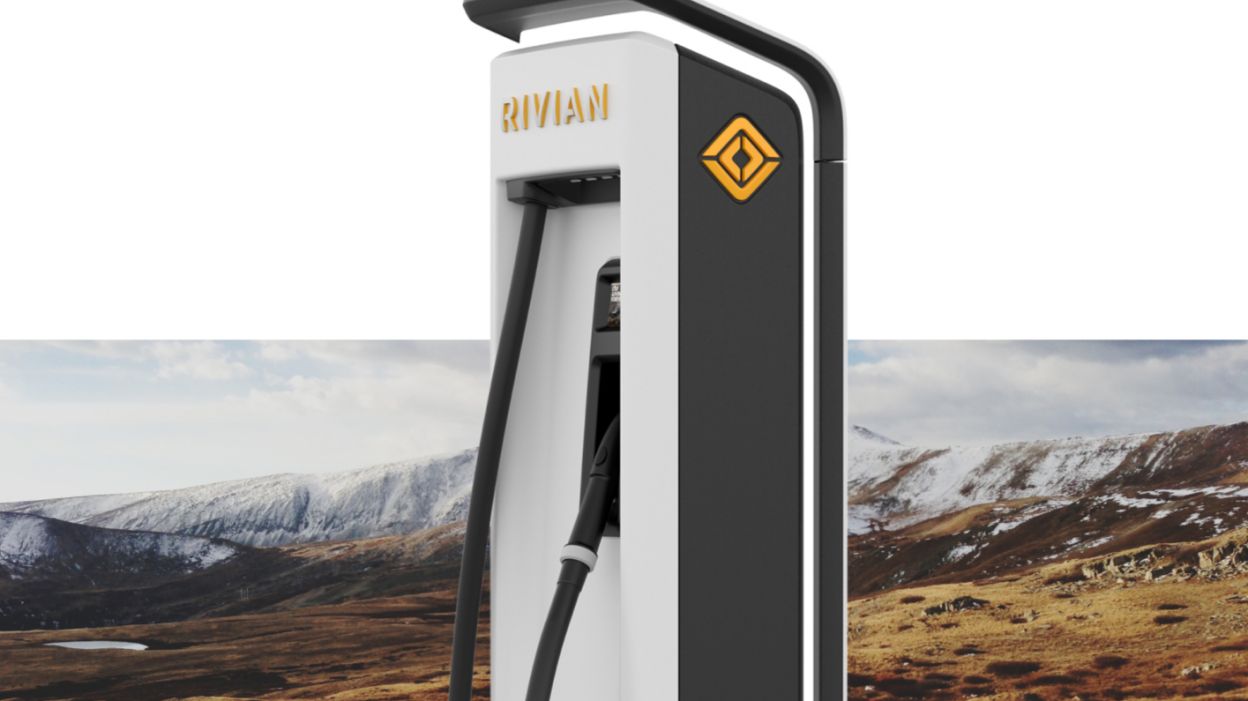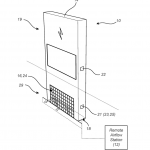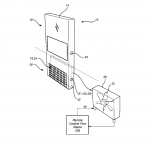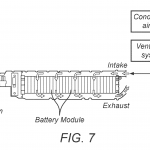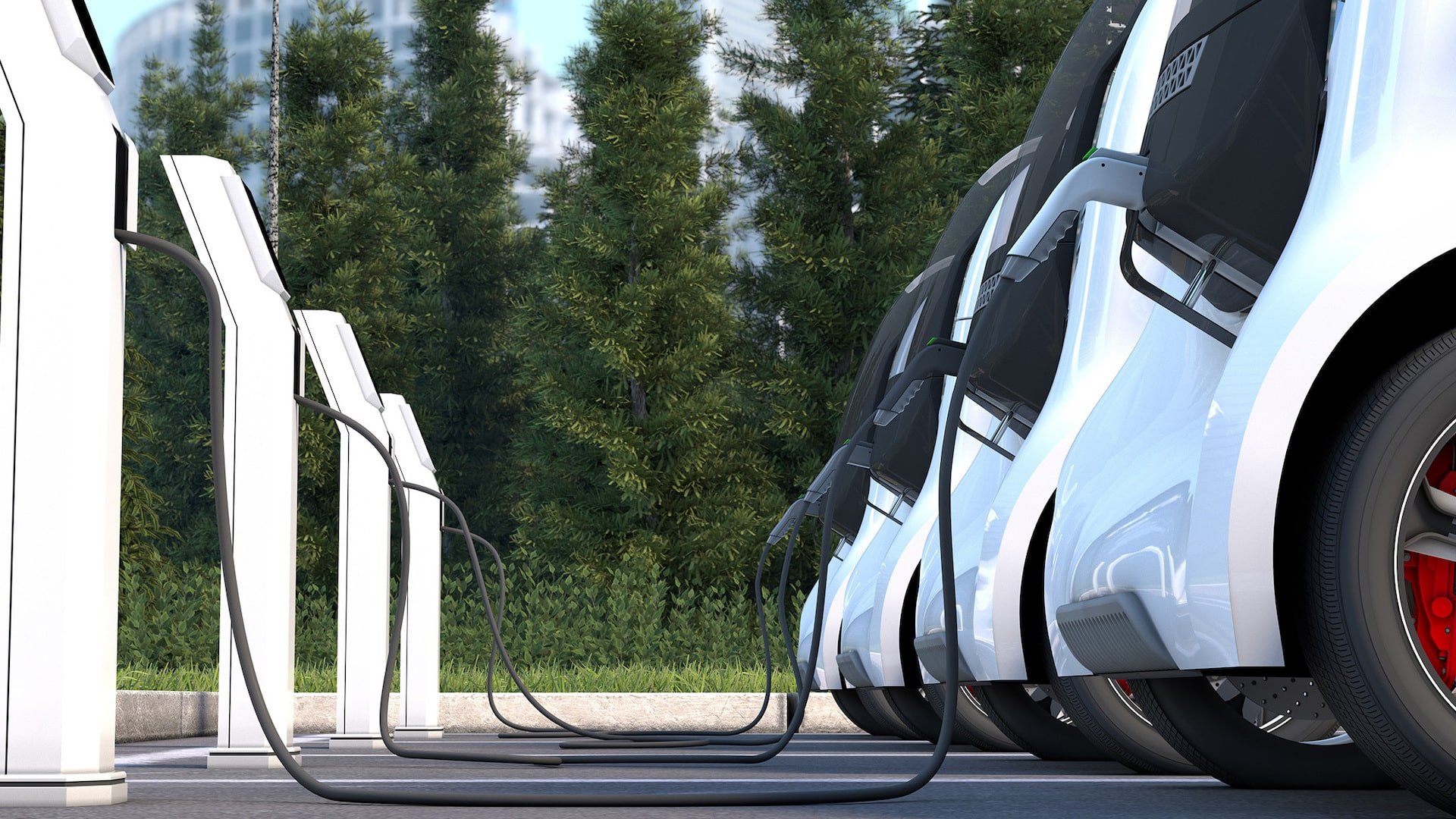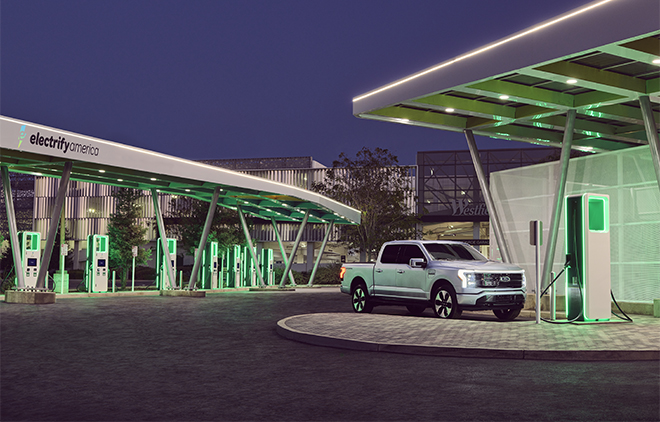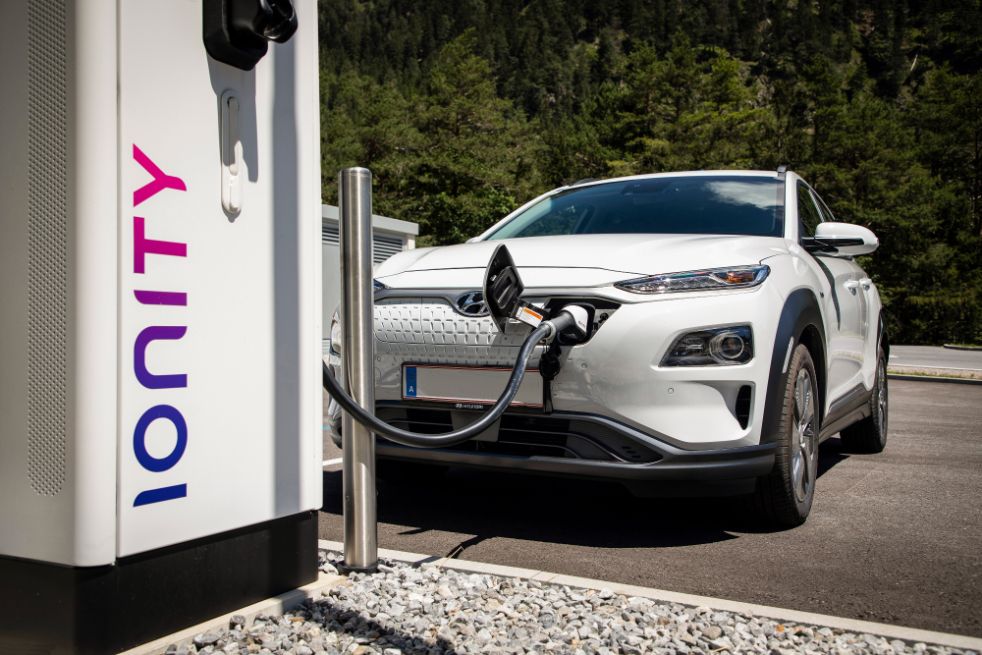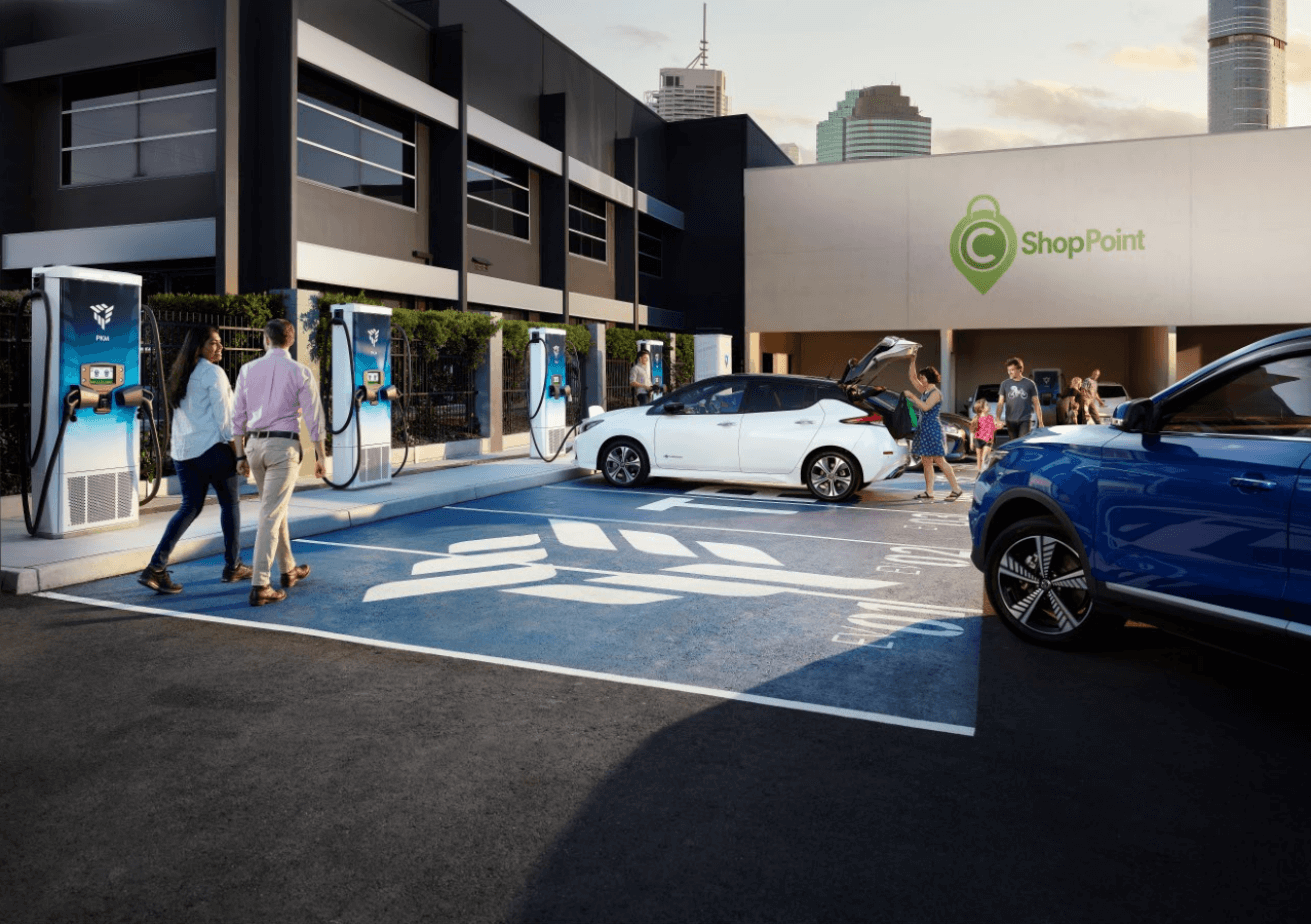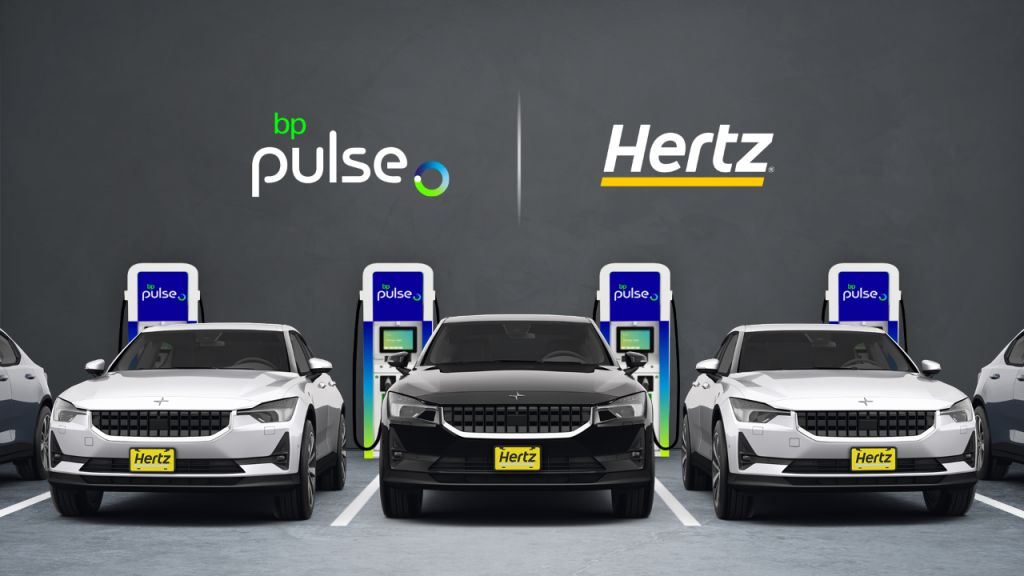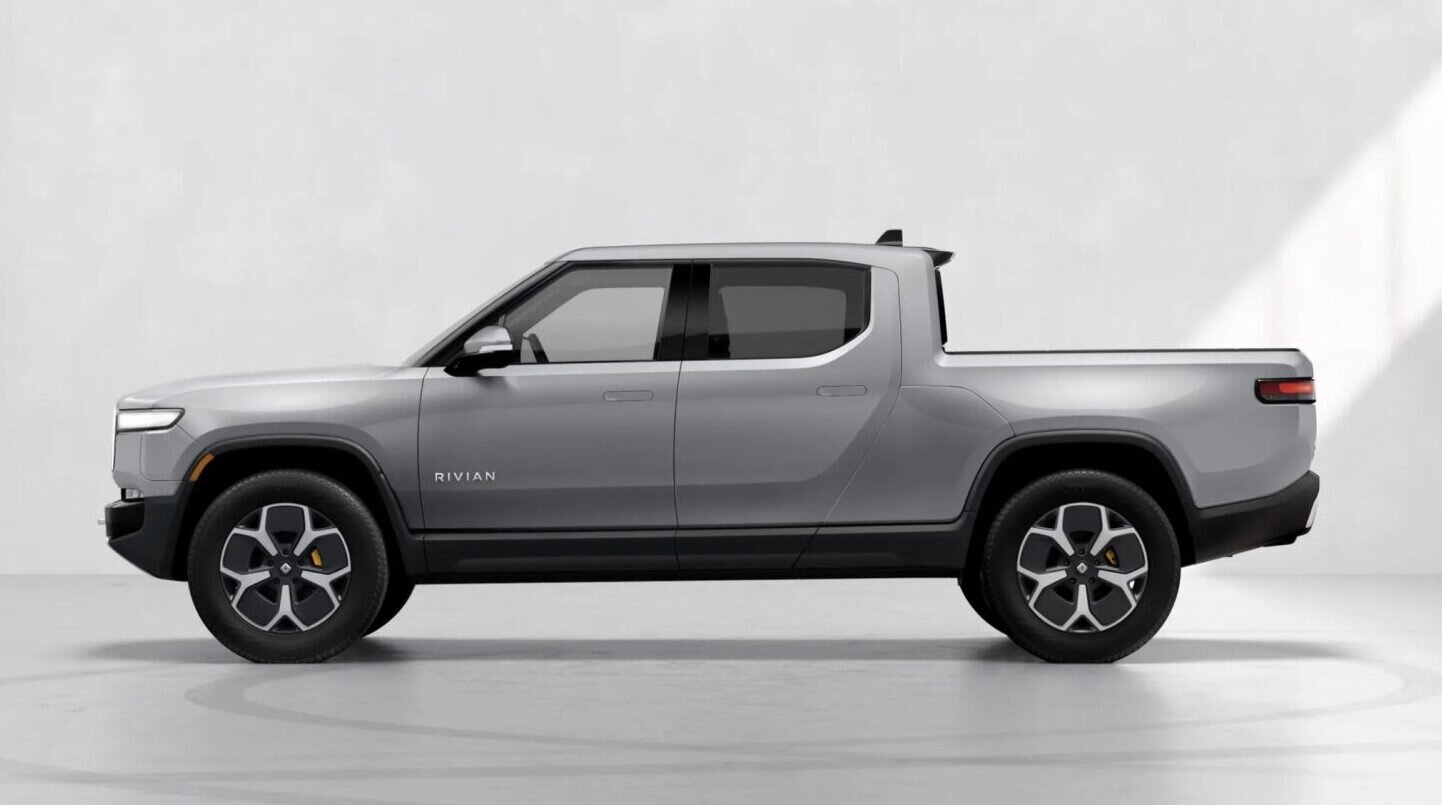Rivian has filed a patent for an air-conditioned electric vehicle (EV) charger that aims to tackle one of the biggest hurdles in unlocking faster charging for EVs: battery temperature. As an EV’s battery charges, particularly at high amperages, it begins to heat up. To maintain a safe operating temperature, the charging station reduces its power output to allow the battery to cool. To battle this issue, Rivian’s patented system would allow a charger to heat or cool a battery in conjunction with the vehicle, depending on ambient conditions.
The air conditioning system would be built into the charging station and could heat or cool the battery, depending on the ambient temperature. By blowing hot or cool air on the battery, it would help maintain a stable operating temperature, increase charging speeds, maintain battery longevity and reduce fire risk while charging.
See also: Rivian to Add Dash Cam Functionality to its Vehicle Camera System in upcoming OTA update
This system could easily integrate into any of Rivian’s current vehicles because it requires no physical alteration of the battery temperature management system. The vehicle’s battery management system would work to maintain the battery’s internal temperature, but instead of taking in only outside air, the air being pushed underneath the truck would be pre-conditioned by the charger.
According to the Rivian patent, the innovation was brought about by the rapid increase in charging power over the past 5-10 years regarding electric vehicles. As companies look to give drivers increasingly faster charging speeds on their new electric vehicles, devices like the one patented by Rivian may become necessary. Not only would it allow for higher charging wattages, but drivers could charge faster, more safely, and without risking the longevity of their current battery.
See also: Porsche files patent for hybrid car batteries cooling system
While Rivian has not specified how much faster this system could make charging their trucks, this technology could lead to equally impressive charging speeds as the jump from non-conditioned batteries that were available in the early Nissan Leafs to the charging speeds capable in most modern EVs. Innovations like this could potentially become real offerings in the near future, offering a significant breakthrough for EV charging.

